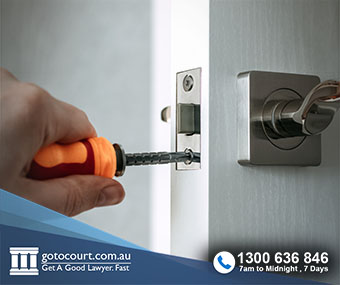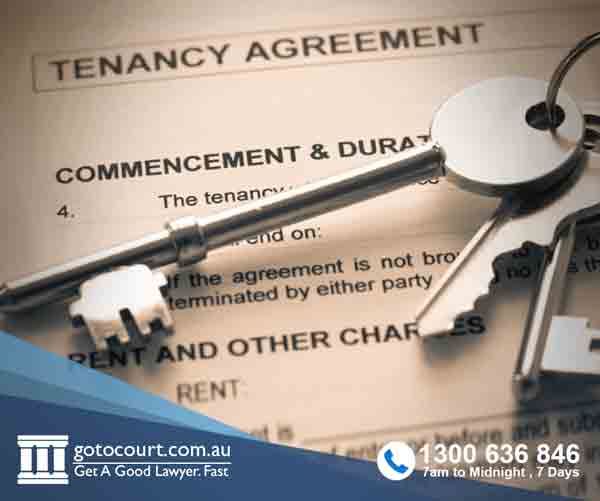Residential Tenancies Disputes (Qld)
Residential Tenancies Disputes (Qld)
Residential tenancies disputes are disagreements that arise regarding accommodation agreements such as a residential tenancy agreement or a rooming accommodation agreement. Residential tenancy disputes in Queensland are dealt with under the Residential Tenancies and Rooming Accommodation Act 2008.
Minimum housing standards
In 2024, Queensland introduced Minimum Housing Standards, which a property must meet when a tenant moves in and throughout the tenancy. These standards apply to all types of residential tenancies.
Requirements under the Minimum Housing Standards include that the property must:
- be weatherproof and structurally sound
- be in good repair
- have functioning locks on external doors
- be free from vermin, damp, and mould
- have curtains in rooms where privacy might be expected
- have adequate plumbing and drainage, and a flushing toilet
- have a functioning cooktop if a kitchen is provided
- have fixtured for a laundry if a laundry is provided.
A landlord is responsible for making sure that a property remains compliant with the Minimum Housing Standards. If a maintenance issue arises, the tenant must advise the landlord and the landlord must ensure repairs are made.
If a property does not meet the Minimum Housing Standards, a tenant has a range of options, including applying to the Residential Tenancy Authority (RTA) for dispute resolution or applying to the Queensland Civil and Administrative Tribunal (QCAT) for an order.
A party to a residential tenancy agreement may also seek assistance from the RTA or QCAT if they believe that any of their other rights under the Residential Tenancies and Rooming Accommodation Act 2008 has been breached.
Tenant rights
Tenant rights under the Residential Tenancies and Rooming Accommodation Act 2008 include:
- the right to quiet enjoyment of the property
- the right to have the property maintained in a liveable condition
- the right to privacy
- the right to end the tenancy if the property becomes unliveable
Landlord rights
Landlord rights under the Act include:
- receiving rent payments on time
- to inspect the property up to every three months
- to have the property kept clean and maintained
- to have the property returned in a similar condition to how it was at the start of the tenancy.
Common disputes
Common disputes in relation to residential tenancies in Queensland involve the payment or non-payment of rent, refund of rental bond, service charges, maintenance and repairs to the property, entry to the premises (including for inspection), termination of the lease, sub-letting, standard of premises, caravan issues, and rooming accommodation agreements.
Resolving a residential tenancy dispute
When a dispute arises about a tenancy, parties should try to resolve it directly by talking and trying to reach an agreement.
If an agreement cannot be reached, an application can be made to QCAT by lodging a Form 2 – Application for minor civil dispute – residential tenancy dispute with QCAT.
The process for dealing with a residential tenancy dispute depending on whether the situation is urgent or non-urgent. There are time limits that apply to lodging a residential tenancy dispute, depending on the type of dispute. Limitation periods vary between seven days and six months.
Urgent tenancy disputes
Examples of urgent tenancy disputes are disputes about urgent repairs or ending a tenancy because of excessive hardship.
Urgent tenancy disputes may be dealt with by QCAT without first taking the matter to the Residential Tenancy Authority.
Non-urgent tenancy disputes
Examples of non-urgent tenancy disputes are disputes about bonds, routine repair orders, and disputes about pets.
Non-urgent tenancy disputes must go through the Residential Tenancy Authority’s dispute resolution process before they can be dealt with by QCAT.
Tenants experiencing domestic violence
If a party to a residential tenancy dispute is experiencing or has experienced domestic violence and is concerned about their safety, they can ask QCAT to take this into account when dealing with the application. QCAT may be able to assist by allowing them to attend by phone or video or taking extra security measures.
Residential Tenancy Authority
Either a landlord or a tenant can request dispute resolution by the RTA. This can occur during a tenancy or at the end of a tenancy.
The RTA will contact the person who made the request. It may then contact the other party and, if appropriate, arrange a conciliation conference.
If you require legal advice or representation in any legal matter, please contact Go To Court Lawyers.

Affordable Lawyers
Our Go To Court Lawyers will assist you in all areas of law. We specialise in providing legal advice urgently – at the time when you need it most. If you need a lawyer right now, today, we can help you – no matter where you are in Australia.How It Works




1. You speak directly to a lawyer
When you call the Go To Court Legal Hotline, you will be connected directly to a lawyer, every time.

2. Get your legal situation assessed
We determine the best way forward in your legal matter, free of charge. If you want to go ahead and book a face-to-face appointment, we will connect you with a specialist in your local area.

3. We arrange everything as needed
If you want to go ahead and book a fact-to-face appointment, we will connect you with a specialist in your local area no matter where you are and even at very short notice.


















